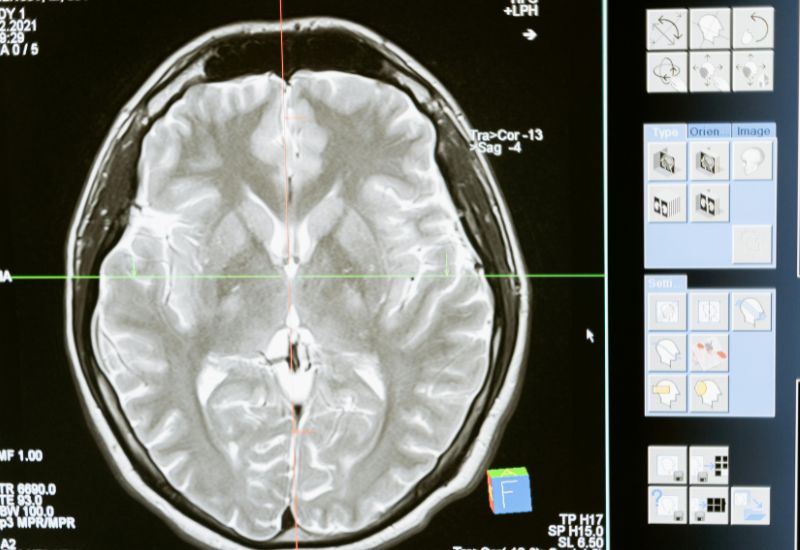
If you’re one of the traumatic brain injury lawyers dealing with brain injury cases, here’s the thing: you’ve got to know what to look for. Spotting the early signs of a traumatic brain injury (TBI) can make or break a case.
These injuries happen when the brain gets hit hard or shaken around, and the seriousness of it is. Well, that’s what ends up driving the whole legal fight.
Hi! In today’s blog, I’ll run through the common causes, symptoms, risk groups, the scary complications, and why all of this ties directly into how you handle a case.
What Is A Brain Injury / TBI?
So, let’s start simple. A TBI is basically what happens when your brain gets rattled, maybe from a blow, maybe something piercing the skull, or just a violent shake.
Sometimes it’s “mild” (which is misleading, honestly), and it just messes with brain function for a bit. Other times, the damage is serious: bleeding, torn tissue, or cells that never come back.
Moreover, in a lawsuit, as one of the traumatic brain injury lawyers, it is necessary to figure out whether the injury is mild, moderate, or severe, which is step one.
Why? Well, that label ends up controlling how much money is on the table, medical bills, therapy, lost wages, all of it.
Causes Of TBI & Brain Injury In Legal Claims

Traumatic brain injury lawyers need to make a successful legal claim, which can help you to prove the negligence of another party who has caused you the injury.
In that case, you need to understand the reasons that caused the issues. Here’s where they usually come from:
| Car wrecks and vehicle crashes | Cars, bikes, and pedestrians are hit while crossing the street. |
| Falls | Ladders, staircases, slip-and-fall in a store, you name it. |
| Violence | Assault, gunshot wounds, and even shaken baby cases. |
| Sports or rec injuries | Football, skateboarding, and other rough activities. |
| Explosions/blasts | are common in military or certain jobs. |
Traumatic Brain Injury Symptoms: What Traumatic Brain Injury Lawyers Should Look For?
Symptoms are tricky because they don’t always show up right away. Some pop up fast, others sneak in days later. Lawyers need to recognize both kinds.
Mild TBI signs could look like:
- Headaches, nausea, that bone-deep fatigue.
- Dizziness, wobbly balance, maybe slurred words.
- Blurred vision, ringing in the ears, weird taste/smell, sensitivity to noise or light.
- Mood swings, trouble focusing, memory gaps, sleeping too much, or not at all
Moderate to severe TBIs crank it up a notch:
- Blacking out or staying unconscious for minutes or hours.
- Headaches that keep pounding, vomiting nonstop, and seizures.
- Pupil dilation, fluid leaking from the ears or nose, not being able to wake up, and numb limbs.
- Full-on confusion, aggressive behavior, speech that doesn’t make sense, even coma.
And kids? They’re harder to figure out because they can’t explain much. So instead, look for:
- Changes in sleep or eating patterns, irritability, and constant crying.
- No interest in favorite toys, seizures, can’t focus, sudden sadness or withdrawal.
What Are The Risk Factors & Legal Implications?
Not everyone has the same risk. Some folks are just more vulnerable, and that plays into both the medical and legal sides.
- Infants and little kids (0–4 years)
- Teens and young adults (15–24)
- Older adults (60+)
- And yes, men in general show higher rates across all ages
Legally, risk matters because it shapes the “duty of care.” A daycare, for example, should expect more accidents with toddlers and take precautions.
Same with drivers, they’ve got to look out for kids darting into the street or elderly pedestrians moving more slowly. When they don’t, liability gets heavier.
What Are The Complications & Long-Term Effects Of TBI?
This is where things get grim. A brain injury can mess with someone’s life in ways that last forever:
- Consciousness problems: anything from coma to a vegetative state, even brain death.
- Physical issues: seizures, fluid pressure (hydrocephalus) — understanding what causes hydrocephalus in infants can help with early detection and treatment — infections, strokes, nonstop headaches, and dizziness.
- Cognitive struggles: memory loss, focus problems, poor decision-making, slow processing.
- Communication breakdowns: hard time speaking, organizing thoughts, reading people’s cues.
- Behavioral/emotional fallout: depression, anxiety, anger, personality changes, messed-up sleep patterns.
For lawyers, these aren’t just health problems; they’re damages. Medical bills that never stop piling up, lost jobs, rehab costs, plus the stuff you can’t put a price on: pain, lost independence, emotional trauma.
How To Collect Evidence To Evaluate TBI Cases?
If you’re taking on a TBI claim, here’s what usually matters most:
Get Medical Proof Fast
CT scans, MRIs, neurological tests, all of it. The sooner it’s documented, the harder it is for the defense to poke holes in it.
Bring In The Experts
Neurologists, rehab doctors, and neuropsychologists help connect the dots between accident and injury and explain future needs.
Severity Isn’t Just A Label
Mild doesn’t always mean “no big deal.” Concussions can drag on with post-concussion syndrome.
Severe cases, obviously, may mean permanent disability. Either way, the classification has to match the damages.
Daily Function Check
How does the injury change everyday life? Can the client work? Drive? Handle stress? That needs to be documented through medical files and testimony.
Think About The Long Haul
Costs add up: therapy, rehab, caregivers, and even home modifications. You’ve got to show what this looks like 5, 10, 20 years from now.
Timing Matters
Insurance companies love to push quick settlements before the full scope shows. Lawyers have to weigh whether waiting a bit reveals the real damage.
Choose A Low Office For Your TBI Lawsuit
At the end of the day, TBIs can change a life in ways that most people can’t imagine. Even so-called “mild” ones leave marks that last.
A smart legal approach, detailed records, credible experts, and a full picture of damages make the difference.
That’s why Guajardo Injury Law focuses on traumatic brain injury (TBI) claims. They’ve been handling TBI cases for years, and they know how devastating these injuries are: physically, emotionally, and financially.
Their team fights to make sure clients aren’t left paying the price for someone else’s mistake.
If you or someone close to you has suffered a brain injury, or even if you’re just noticing the early signs, Guajardo Injury Law offers free consultations.
They’re committed to protecting your rights and pushing hard for the justice and compensation you deserve.
Read Also:
- How Much Is Your Personal Injury Case Worth? Key Factors Explained
- How Lawyers Help You In Calculating Personal Injury Damages
- What to Do If You’ve Been Hit by a Car?











0 Reply
No comments yet.